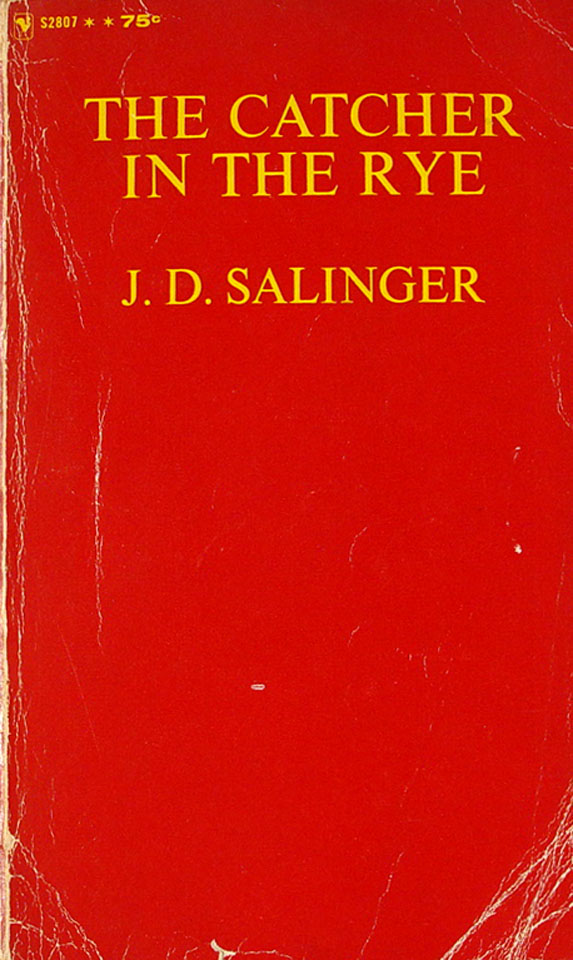"That is part of the beauty of all literature. You discover that your longings are universal longings, that you're not lonely and isolated from anyone. You belong." - F. Scott Fitzgerald
Thursday, March 28, 2019
Post #6: THE CATCHER IN THE RYE Ending
The ending to THE CATCHER IN THE RYE did not seem as extreme as the chapters leading up to it. Did you expect the ending to be more intense, or did you like how it was? Why? What are we left with, as far as the deeper truths we've been after?
Tuesday, March 19, 2019
Post #5: Introduction to Holden Caulfield
THE CATCHER IN THE RYE has become an essential selection of American Literature, no doubt due to the unique and complex voice of its narrator, Holden Caulfield.
Being such an interesting voice has its flaws, though, as much of the novel's depth lies hidden in what Caulfield doesn't actually say. As we begin our study of the novel, I'd like for you to analyze the opening line. What do you see? What do you not see? What do you expect from this person? How does this line impact your perception of Holden?
First Line:
"If you really want to hear about it, the first thing you'll probably want to know is where I was born, and what my lousy childhood was like, and how my parents were occupied and all before they had me, and all that David Copperfield kind of crap, but I don't feel like going into it, if you want to know the truth."
As always, I'd like to see this become a discussion. Respond to a classmate or two with something meaningful. Let's see where Holden takes us...
Tuesday, March 12, 2019
Post #4: Ode On A Grecian Urn (Keats)
For this post, you will create a bulleted list of what you believe to be the 10 most important features of the poem. It may be simple as the rhyme scheme, it may be as minute as the placement of a dash. Note your observation in the list, and briefly explain its significance.
After you have done this, please respond to two of your classmates. Make sure that you are referencing specific insights and/or points of contention here.
Wednesday, March 6, 2019
Post #3: Hamlet, Act V.1 - Alas, poor Yorick...
In this scene, lines 181-191, we see Hamlet's second most famous soliloquy. Indeed, the most common portrayal of Hamlet is with him holding a skull. Break this speech down. What do you notice? How does it relate to the rest of the play? What is he saying, from a philosophical stance? Does it run counter to anything we've heard from him before? Does it match up with anything other characters have said? Take this where you want to go. We're doing this one in class, so I'm looking for around 7 good sentences worth of commentary. Afterwards, briefly respond to 1 classmate in detail. If you like, and time permits, you may respond to more.
Subscribe to:
Comments (Atom)



